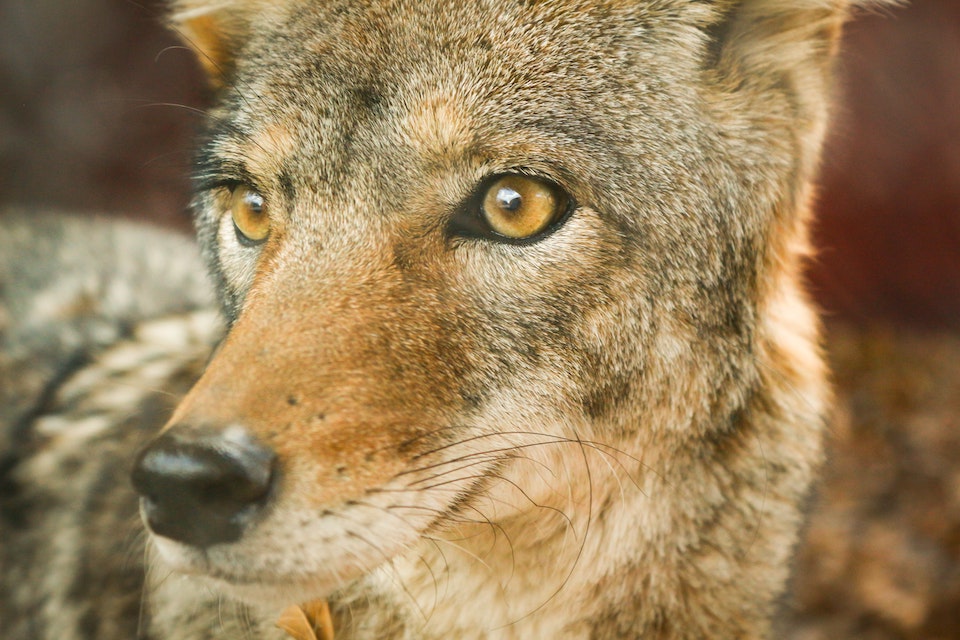Measure does not strip federal protections for wolves and bars the opening of any new horse slaughter plants in the U.S.The House gave approval to the Fiscal Year 2019 spending bill last night by a vote of 300–128, on the heels of an 83-16 vote in the Senate. It goes to President Trump posthaste, and he’s signaled he’ll sign the measure to avert a second shutdown of large portions of the federal government.
While much of the public discussion of the spending bill focused on whether to spend $5 billion for a more extensive southern border wall — a debate that the resolution of this spending bill apparently has not settled — the bill provided funding of $333 billion for a massive range of other programs, including funding for the Agriculture and Interior Departments, which are the most important agencies from an animal welfare perspective.
We are pleased that the top negotiators decided to omit anti-animal riders included in the final measure that went to the full House and Senate this week. This sort of annual spending package – where lawmakers bundle several major spending bills together and wrestle with each other over their priorities and play brinksmanship while a government shutdown looms — has always been a source of anxiety for animal protection advocates. Some of our issues, including wolf protection and horse slaughter, have been part of that annual fracas between the parties, with Democrat leaders holding firm against efforts to kill horses and wolves.
More specifically, Republican lawmakers, supported by Democrat Senators Amy Klobuchar of Minnesota and Tammy Baldwin of Wisconsin – have tried for years to add a rider to the spending bill to remove federal protections for wolves in the Great Lakes, and in some cases throughout the lower 48 states. We are glad to report that the anti-wolf rider is omitted from the spending bill.
And with pro-animal Rep. Raul Grijalva now chairing the House Natural Resources Committee, it is unlikely that any free-standing anti-wolf bill will get momentum in the House. The battle over wolves may now shift to the Interior Department, where the agency has again signaled it will again try to remove federal protections for wolves by its de-listing authority. Given that the federal courts have blocked de-listing because the U.S. Fish and Wildlife Service has not taken a broad enough look at wolf recovery, it’s expected that the agency may have a difficult time cobbling together a de-listing plan that can satisfy the rigorous the standards that the courts have articulated in their past rulings.
Meanwhile, the $333 spending bill also provides good news for horses. It bars USDA from spending any tax dollars on horses for slaughter for human consumption at licensed slaughterhouses. This effectively blocks the operations of any horse slaughter plant in the U.S. For the past decade, this has been a very difficult and closely contested fight, with pro-horse slaughter operators threatening to open plants in Missouri, New Mexico, Nebraska, and other states. Horse advocates stymied these efforts, but just barely, and the imposition of the defund language in the Agriculture spending bills for years has been central to the successful strategies.
Now with Democrats in control in the House, there is a reasonable chance that we’ll see meaningful action on a broader effort to curb slaughter throughout North America. Reps. Jan Schakowsky, D-Ill., and Vern Buchanan, R-Fla., have introduced the Safeguard American Food Exports (SAFE) Act, H.R. 961, which would not only bar U.S. horse slaughter plants from operating, but would also ban the live export of American horses to Canada and Mexico.
Last year, about 70,000 American horses were shipped over the borders for butchering at slaughter plants in Mexico and Canada. For those horses, it’s a passage filled with terror and misery, as horses are jammed onto trucks for long-distance travel, denied food or water, and then marched into a slaughter plant where they are shot, cut or stabbed to kill them for their meat. It’s a predatory industry that pays little heed to animal welfare or food safety concerns.
Because the European Union has imposed more rigorous food-safety testing standards if it is going to accept horse meat from Canada and Mexico, the slaughter plants have ratcheted back the killing. It appears that the live export of American horses to Canada and Mexico is down by half from just three or four years ago.
Still, it’s an awful and abusive industry for horses, and that’s precisely why the SAFE Act is needed. The elasticity of the slaughter numbers reveals that the horse slaughter industry is hardly a safety valve to deal with so-called “unwanted horses” in America, as the pro-slaughter crowd likes to say. Instead the killing levels are driven entirely by supply and demand issues, and the EU restrictions on imports prove the point.
Wild horses and burros are also at risk of being funneled into this predatory industry. And that’s why it was also good news that the $333 billion spending bill had language forbidding the transport of any wild horses and burros for slaughter. The bill also encourages more active fertility control as a way to manage the populations of horses on the range.
As with the border wall, no single bill in Congress settles controversial matters. We’ll have much more to do to maintain protections for wolves and domesticated and wild horses and burros. But it’s a moment for a brief celebration, and then back to work to pass the SAFE Act, fortify and enforce the Endangered Species Act, and pass a raft of other bills in the Congress to enhance protections for animals and establish a legal standard that cruelty is never acceptable.
Please click here to ask your Members of Congress to support the SAFE Act.
